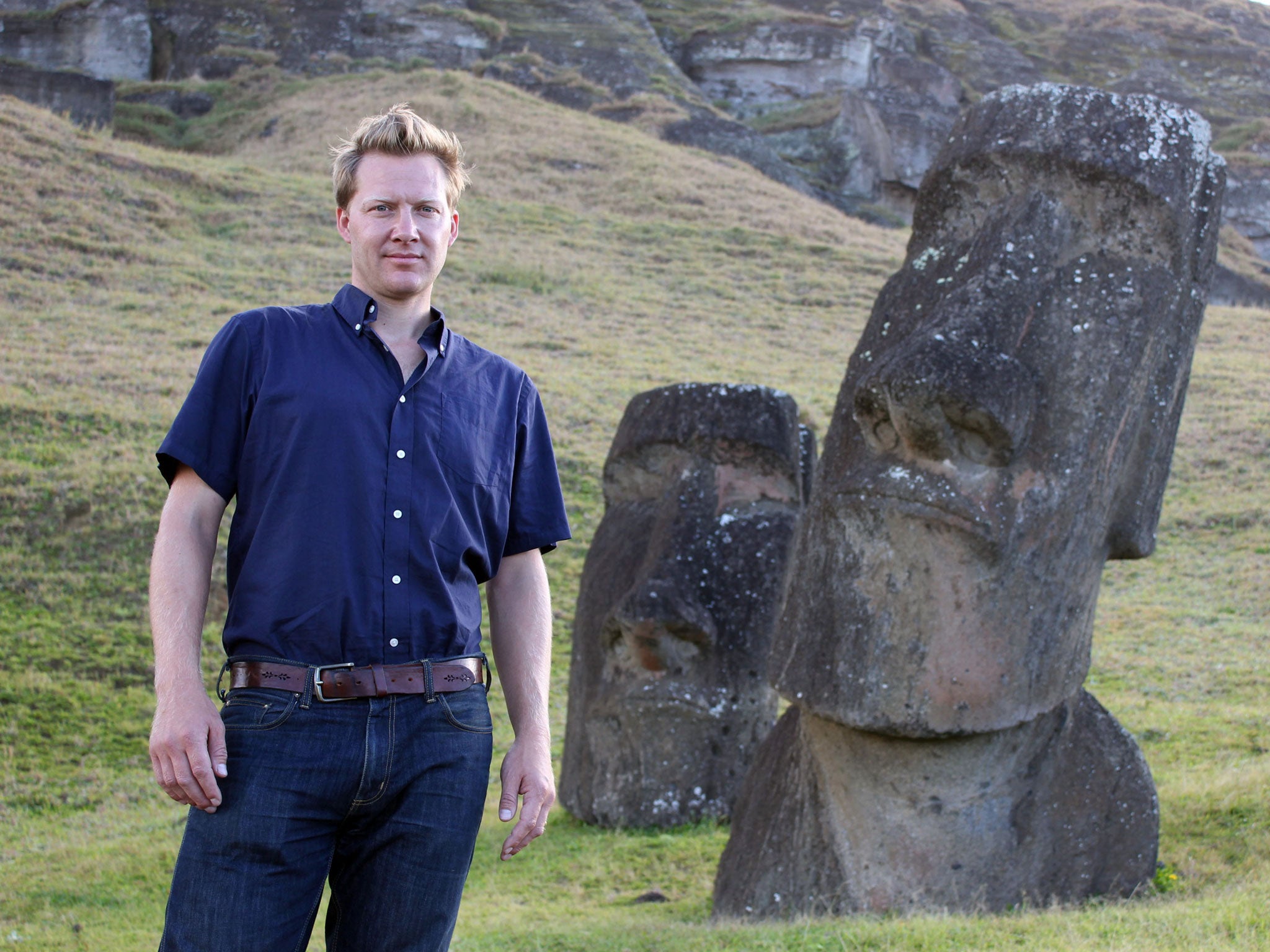Easter Island: Mysteries of a Lost World, TV review: Archaeologist digs deep to prove that a lost tribe can hold their heads up high

When most of us think of Easter Island, or Rapa Nui, we think of moai, the 887 magnificent statues that guard its shores. But the mystery of BBC4's Easter Island: Mysteries of a Lost World wasn't how these monoliths were made, or how they were moved into place (aliens, obviously) or even whether the ancient Rapa Nui people were responsible for their own decline, it's why the myths have persisted for so long.
It's rare that a documentary succeeds in completely overturning popular understanding, but that's what the archaeologist Dr Jago Cooper accomplished his 90-minute film, which was part agricultural history, part environmental study and part plea for the future of the Rapa Nui currently under Chilean rule. The fate of this island microcosm may provide us with a parable but, argued Dr Cooper, the moral is not what it's often assumed to be.
Cooper and his colleagues from all over the world presented us with an archaeological record that suggested that the traditional narrative of ecocide and warring tribes does the island's people a great injustice. Prior to first contact with Europeans, the Rapa Nui had employed sophisticated farming techniques to offset the effects of over-harvesting. It's what happened after Dutch explorer Jacob Roggeveen first sighted land on Easter Day, 1722, which really sealed their fate: a familiar tale of smallpox, slaver trading and land theft. By 1877, only 111 islanders remained, down from an estimated population high of 15,000.
If you made it through some rather detailed explanations of ancient drainage systems, you'll have seen Cooper's optimistic slant on all that. If the Rapa Nui people had a chance to restore their damaged environment, prior to outside intervention, perhaps there's hope for the whole planet? Provided those aliens don't schedule a return visit, of course.
Subscribe to Independent Premium to bookmark this article
Want to bookmark your favourite articles and stories to read or reference later? Start your Independent Premium subscription today.

Join our commenting forum
Join thought-provoking conversations, follow other Independent readers and see their replies